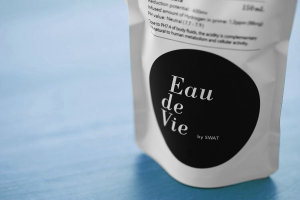When we launched the first issue of JOSHUA’s Magazine, I remember the amazement and wonderment that we encountered, people asking “How did you do it?” and I do have to confess in retrospect, I at times wonder myself, with the knowledge gap that I only now realise had existed at the time. But by magazine in this particular instance I am referring to its digital counterpart, the online magazine – much like the one you’re reading now – which is curated by editors & writers and are often represented in both the print and digital medium. As you well know, the internet is a disruptive innovation, and perhaps its greatest disruption has been to how we consume our media. Go back 20 years with dial-up internet connection and 52kb upload speed, there was little thought paid by the print industry to the incumbent threat to that format.
Yes there were websites, and yes there were blogs, but the laggard connections meant media consumption was more chore than enjoyment. You could probably build a website now in the time it took to load one in the mid-90’s. No joke.
Perhaps the earliest indication of the potential of personal curation platforms was MySpace, where – albeit with a focus on music – normal people were able to provide opinions and attract audiences that hung on their unique perspective. And so it continued, with Blogspot, Tumblr, Blogger, WordPress etc the digital world has continued to progress with amateur platforms becoming more and more sophisticated as both technology and software improved.

Now we have reached a time where bloggers write for magazines, magazine editors have their own blogs, so can we really use the ‘expertise’ argument to differentiate between the two?
In truth many of what the media space are calling blogs really aren’t blogs. Let’s be clear here, I’m referring purely to the men’s sector of blogging not female oriented.
With women’s blogs, their followers are mainly reflective of the bloggers themselves, that ardently subscribe to said blogger’s lifestyle and hence every tip that rolls from their tongue. Why? Well rather than the emotional disconnect that there is with popular magazine Editors, top bloggers give full lifestyle insights, create stories around looks and in-depth daily tips that the magazines don’t currently provide – although even that is changing. With male bloggers, most guys prefer ‘banter and laughs’ and don’t require the same in depth connection to engage, and neither do we harbour the ‘guy envy’ mentality – in fact I find it hard pressed to recall when I’ve heard anyone refer to a male blogger in an aspirational manner. It can be seen with most of the male super-blogs; look closely and you will notice that a substantial part their readership often comes from teenage girls, following every move of their latest crush.
Female targeted media have long been champions of the short lead, often invasive media, with ‘weekly glossies’ performing well in the print format, while for the men there is no equivalent print segment – the demand simply doesn’t exist. You could argue that in technology and sport the men’s sector has found their champions, but even then consumption is more news and informative in nature rather than emotional and superfluous.
So for men, what is the actual difference between magazines and blogs? In the main, it has become perception, but in truth it is commerciality.
Granted, there is a spectrum, a progression from blog to magazine. Whereas many platforms start out as blogs, they eventually progress into what we call (online) magazines, and hence are affected by the same commercial pressures that magazines face. These bloggers are part/full time vocations, wage contributors, mortgage payers, and hence require commerciality.
Bloggers will argue that “they only take projects they believe in” but then so do magazines, only working with brands that fit with the brand image they have taken the great time (and often expense) to create.
The problem is as soon be as a blog reaches a certain scale, be it with Instagram followers, YouTube subscribers, or unique monthly visitors, they will be inundated with brand requests, feature proposals and opportunities; with even the most ardent of bloggers, it is only a matter of time before commerciality takes precedence.

Do true blogs still exist? In some form yes, but true blogs have smaller, more focused audiences, they are imperfect non-commercialised passion projects, inconsistent in nature but written in an honest 1st person perspective about topics of interest to them.
Once the commerciality creeps in, that perceived association of ‘neutrality’ gained by using the term ‘blog’ should no longer be given credence.
So what does this mean for you the reader, and moreover why should you care? Well, there is a great saying:
“A good idea doesn’t care whose brain it comes from”
And while that is true, that doesn’t necessarily mean that all “brains” have ”good ideas”.
So with that in mind it is important to treat each medium with the respect that it warrants, and weight the information accordingly; Magazines (and blogs-that-would-be-magazines) for their expertise and (real) Blogs for their candid honesty.
Hopefully armed with the above artillery, it will make it easier for you to “call a blog, a blog”, and “a magazine, a magazine”.
Thoughts from Eli Ankutse, Editor in Chief JOSHUA’s Magazine & SAMSON. To find out more about Eli’s insights visit rosethornrose.com.
MORE FROM THINKPIECE








